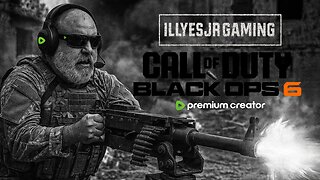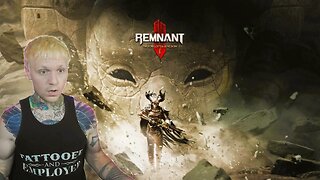Premium Only Content

WWII fallen soldiers being dishonoured by celebration of Iraq war criminals Remembrance Sunday 2023
This is how fascist government is done: Royalty telling supine #GoldmineSachs Downing Street imposter, after non-remembrance ritual, to give their unaccountable unpopular mate key foreign policy genocide endorsement job. #Gaza
My Name is Legion: The Control of Remembrance
Click here to read the full report; My Name is Legion: The British Legion and the Control of Remembrance
Published by Veterans for Peace, 5 November 2015
With its links to the arms trade, increasingly militarised presentation of Remembrance, and growing commercialisation and corporatisation of the poppy “brand”, it’s time to reconsider whether the Royal British Legion is still suitable to be the “national custodian of Remembrance”.
My Name is Legion: The British Legion and the Control of Remembrance explores how the Royal British Legion’s status as the self-appointed “national custodian of Remembrance” has been compromised through its collaboration with some of the world’s most controversial arms dealers, its increasingly militarised presentation of Remembrance, and its commercialised and trivialising corporatisation of the poppy “brand”.
It draws on the work of a number of journalists, campaign groups, veterans, and religious organisations who have expressed concern at the direction the Legion is taking, and asks whether the charity is still fit to be the “national custodian of Remembrance”.
One striking manifestation of the synergy between the British Legion and the British arms trade is its relationship with BAE Systems, who in 2003 not only funded sales of weaponry to Saudi Arabia, Libya, and the Middle East, but also the RBL’s annual Remembrance events. As the Telegraph noted, “a decision by British defence manufacturer BAE Systems to sponsor this year’s Poppy Day has been likened to ‘King Herod sponsoring a special day reserved to prevent child cruelty’”.
The Legion’s £100,000 sponsor and “platinum corporate member” is not only one of the world’s most profitable arms companies (as the world’s third largest arms producer its revenue in 2013 was $26.82 billion) but also one of its most controversial. One of its main markets is Saudi Arabia, which the British Intelligence Unit ranked 163rd out of 167 countries in its “democracy index” – just above North Korea and Syria.
Despite the “King Herod” associations, the Legion has maintained and even strengthened its relations with arms traders. This year (2015), for example, the British Legion’s annual ‘Poppy Rocks Ball’ is being sponsored by Lockheed Martin UK, the subsidiary of the world’s largest arms supplier,
The increasing involvement of the arms trade in the Legion’s activities also coincides with a much more coercive and aggressive ‘in-your-face’ campaigning style that the Legion has adopted in recent years, as many journalists and veterans have noticed.
In 2014, for example, Quaker Peace & Social Witness produced a document that explores how “the involvement of the military in the RBL’s campaign has increased” over the last few years, in line with a rise in the more general promotion of the military, and noted that this involvement marks “a substantial departure from the RBL’s historic message of remembering the horror of war, towards those involved in current war” (The New Tide of Militarism).
A number of veterans also signed a public letter to the Guardian in 2010 complaining that the RBL’s Poppy Appeal was subverting the original intention behind Armistice Day: “A day that should be about peace and remembrance is turned into a month-long drum roll of support for current wars.” Respected war correspondent Robert Fisk has written eloquently about his anger and disillusionment with the “bloody poppy”, and how the symbol of the death of so many men has now “been turned into a fashion appendage”. Channel 4 News presenter Jon Snow has referred to modern “poppy fascism”, to denote the increasingly coercive and militarised presentation of Remembrance these days.
This shift towards a far more commercialised and corporatised approach to Remembrance has developed since 1997, when the Legion formally applied to trademark what they now refer to as their “iconic poppy brand”. The Legion are also taking a new litigious heavy-handed stance towards anyone deemed to be “infringing its trademark”, as its website page makes clear: “The Legion’s 2-petal poppy is a registered trademark and should not be used without permission.”
....
Click here to read the full report; My Name is Legion: The British Legion and the Control of Remembrance
Rod Tweedy is author of The God of the Left Hemisphere: Blake, Bolte Taylor and the Myth of Creation, and Secretary of the William Blake Society.
-
 LIVE
LIVE
SpartakusLIVE
4 hours ago$1,000 Pistol Challenge || #1 ENTERTAINER of The EONS Eradicates BOREDOM
2,131 watching -
 LIVE
LIVE
Barry Cunningham
4 hours agoPRESIDENT TRUMP HAS TAKEN THE MONSTER AWAY FROM THE LEFT! HORROR STORIES WON'T WORK ANYMORE!
7,464 watching -
 38:47
38:47
MattMorseTV
2 hours ago $3.49 earned🔴Tulsi just CLEANED HOUSE.🔴
15.3K14 -
 LIVE
LIVE
SynthTrax & DJ Cheezus Livestreams
5 hours agoShell Shock Live - The Scorched Earth Remake/Upgrade - 4pm PST / 7pm EST - RUMBLE GAMING
113 watching -
 LIVE
LIVE
Illyes Jr Gaming
1 hour agoBack to Black .....Ops 6 w/ ILLYESJRGAMING
54 watching -
 1:07:59
1:07:59
BonginoReport
4 hours agoBoston Mayor Defies Trump, Protects Illegals - Nightly Scroll w/ Hayley Caronia (Ep.115)
79.8K53 -
 40:45
40:45
Donald Trump Jr.
5 hours agoPeace by Peace: Solving One Problem After Another | Triggered Ep.268
39.9K50 -
 LIVE
LIVE
FrizzleMcDizzle
2 hours agoRemnant 2 - Dark Souls-like Shooter?!
87 watching -
 LIVE
LIVE
FoeDubb
1 hour ago🏰KINGDOM MENU: 🏈FOOSBALL & 🎮DELTA FORCE PEW PEWS DILLY DILLY!!
21 watching -
 11:43:31
11:43:31
GritsGG
12 hours agoWin Streaking! Most Wins 3390+ 🧠
53.3K